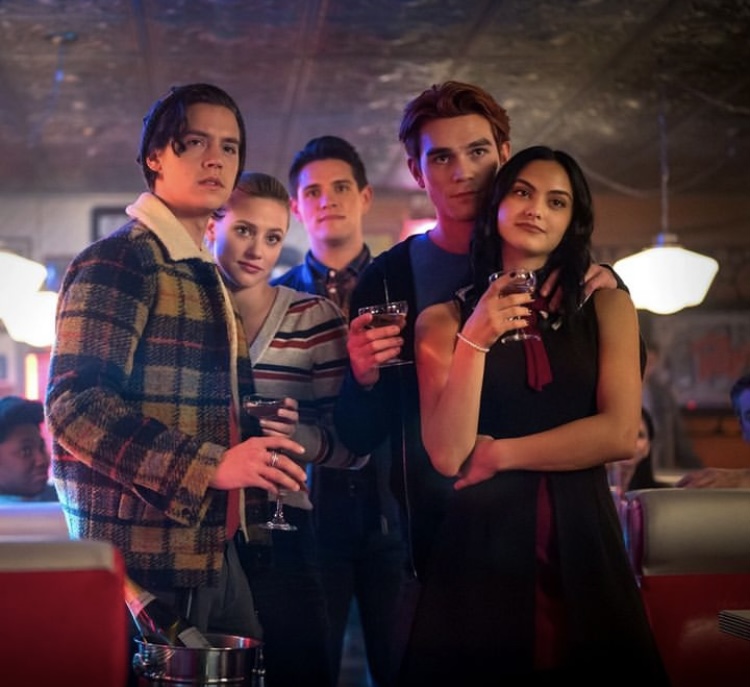
TV Writer Toby Jarvis defies the unpopularity of teen drama Riverdale, believing it to be a postmodern masterpiece and finding the drop in ratings to be a tragedy
Riverdale entered our realm in 2017 as a ‘gritty’ adaptation of the unrelentingly twee Archie Comics, an American pop-cultural mainstay since the 1950s. It’s hard to articulate what the show was, since it’s largely been consigned post-mortem to the realm of YouTube cringe compilations, but regardless of Riverdale’s exact nature, you haven’t understood it – not that that’s your fault. The characters are approximations of their comic-book counterparts: there’s Archie, a more attractive Green Giant, girl-next-door Betty, as inoffensive/lovable as a bowl of cornflakes, and new girl Veronica (my favourite), for whom the writers are perpetually strapped for things to do. The biggest change here is hamburger enthusiast Jughead Jones, rendered ‘an emo heart-throb’ (the script’s words) and played by noted Victorian orphan impersonator Cole Sprouse.
Riverdale ascended beyond the realm of human understanding
It’s season two where many claim Riverdale falls off the wagon. Unfortunately, many are wrong, because television peaked over the remaining seasons. I would do unspeakable things to peer inside its writers’ room, but regardless of what exactly happened, Riverdale ascended beyond the realm of human understanding.
Watching everything post-season one is like being concussed with a Millwall brick of a hundred spec-scripts. The show will reference Lynch & Polański as readily as it devotes an entire episode to a production of American Psycho: The Musical, leaping between genres and tropes with such gusto that while it’s hard to follow, it’s harder to not be caught up with; there’s a lovable manic energy to the pace at which the show carries you along. You’re supposed to lob spaghetti to see what sticks – in this sense Riverdale annexed northern Italy and set about pasta-flinging at an industrial scale.
Riverdale has never been afforded the camp status of contemporaries like Glee; it’s a postmodern beast that defies analysis
You might notice I am light on specific narrative details. I can relay individual events with ease – Archie’s bear punch-up, his homoerotic vigilante group, Cheryl Blossom, the queen of bees – but assessing these happenings through any narrative structure at all is a nigh-impossible task. Maybe that’s why Riverdale has never been afforded the camp status of contemporaries like Glee; it’s a postmodern beast that defies analysis, a pop-cultural event horizon to which exposure would probably kill Ted Kaczynski a second time. This phenomenon, cliché as it is to say, is something you have to watch yourself to grasp.
This effect became more pronounced as the show continued, but the great tragedy of Riverdale, and the reason it’s a ‘hidden gem’, is that not many watched its unhinged (and brilliant) last outings. You could count the ratings of the final season on the fingers of a lumberjack post-horrific chainsaw accident. What makes this particularly sad is that Riverdale’s ending has wider significance as the end of a television era; no new drama in 2023 will receive a twenty-episode order, and most shows are subject to the whims of executives who might axe them at any moment. Such conditions do not allow for the creation of another Riverdale, where writers had the freedom to follow their many bizarre and wonderful ideas. Perhaps there will never be anything else like it.
Read more TV articles here:
Character Spotlight: The Seventh Doctor

Comments